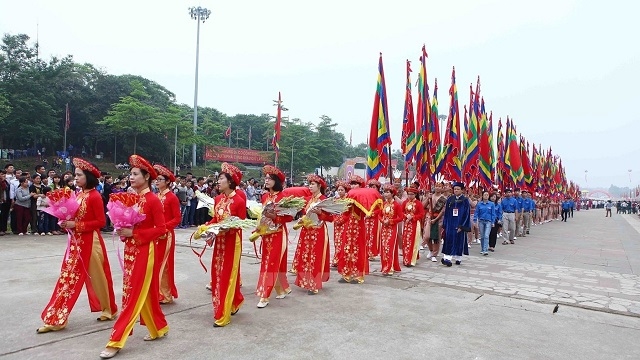


|
|
|
|
The
10-minute film entitled "Den Hung - Linh Thieng Nguon Coi” (Hung King
Temple - The Sacred Homeland) was made by Phu Tho province, the Hung King
Temple Relic Site and PetroVietnam Gas Corporation.
Traditional
Vietnamese beliefs and practices are introduced in the film, giving viewers a
chance to learn more about the glorious history of the nation.
The film
will air on Voice of Vietnam Television, Nhan Dan Television and Vietnam
Multimedia Corporation Television in the coming Lunar New Year. It will show
the custom of worshipping Hung Kings on the occasion of the Ancestral
Anniversary and Hung King Temple Festival, falling on the 10th day of the
third lunar month.
Legend has
it that Lac Long Quan (Dragon King) and his wife Au Co (Phoenix Queen) gave
birth to one hundred men. Fifty sons went with their mother to live in the
mountain and the father took the other sons out to sea. The eldest son
followed the mother to settle in Phong Chau of today’s Phu Tho province and
founded the country known as Van Lang.
Van Lang
was the first state of Vietnamese people. The Hung Kings’ dynasty lasted 18
generations.
The custom
of worshipping the Hung Kings developed from the 12th century, being
officially honoured during the reign of King Le Thanh Tong in 1470. Since
then, celebrations of the founders of the Vietnamese nation were maintained
throughout the community. The practice was recognised as an Intangible
Cultural Heritage of Humanity by UNESCO in 2012.
|
Source: NDO